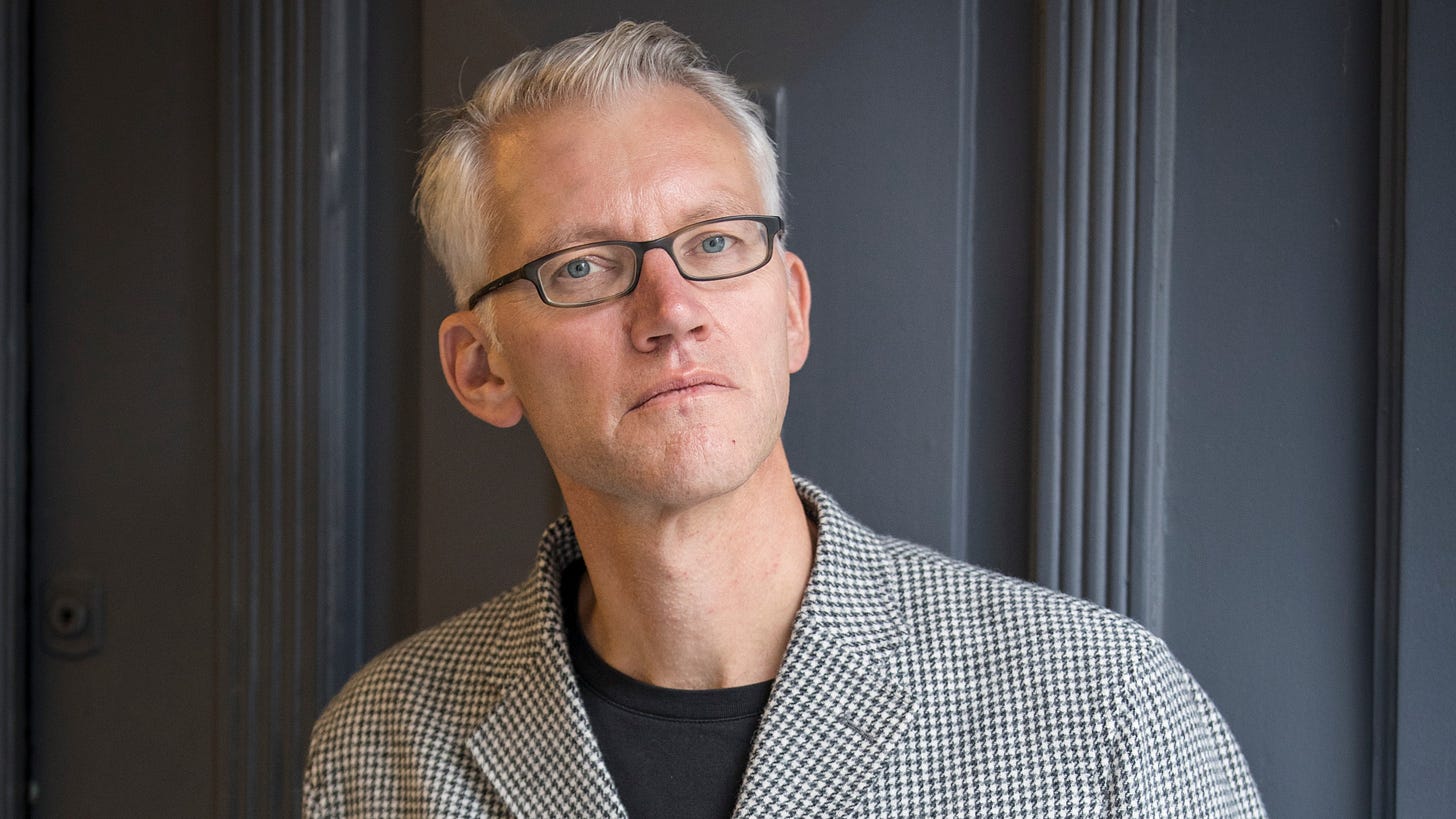Tom Holland is one of the most acclaimed and prolific popular historians working today. For over two decades, he has been one of the most dependable figures, publishing several best-selling books about the Roman Empire, the ‘Ancient World’, and the birth of England, among others. In 2016, he was elected a Fellow of the Royal Society Of Literature, and continues to act as a Member of the Board of the British Library and a Trustee of the British Museum. Today, he continues to author popular history books and co-host The Rest Is History, one of Britain’s most popular podcasts.
Why did we invite him?
Last month, we had Tom’s The Rest Is History co-host Dominic Sandbrook on the show to discuss the ‘moralising’ of history. It was one of our favourite conversations of the year, as we and Dominic slalomed through the ethical outlook of historical figures both pilloried and adored, and considered a crucial dilemma: are we assessing history properly?
With Tom, we wanted to discuss something specific to his expertise: Christianity. More specifically, its relationship to the West and, more recently, to Islam.
It has long been a subject of fascination, but the role of Christianity in public life has become more dominant in the public conversation. Church attendance in Britain is on the rise for the first time in decades, and young people are increasingly turning to traditional theology, likely as a response to the perceived instability of the modern world.
We wanted to talk to Tom about why that is, how foundational Christian teaching is to Western values, and what happens when it comes into contact with an opposing doctrine. Having hosted him once before, we knew he’d deliver. He didn’t disappoint.
What did we learn?
“Nothing comes from nothing. Christianity emerges from a matrix you get in the first century. There are many influences on it; Greek, Jewish, Persian, and the Roman Empire … If you imagine it as a great sea, there are many rivers that flow into it. But we are goldfish, and Christianity is the water we’re swimming in.”
The thrust of Tom’s argument is this: Christianity’s influence on Western culture is so immense and all-encompassing that we can no longer recognise it. Just as the fish has no concept of ‘water’, we look straight through its presence; we can’t imagine life without it because we can’t conceive our life within it.
’The cross’ is as ever-present a symbol as it’s possible to imagine. Even in what is, until recently, an increasingly secular world, one cannot go through life without laying eyes on one, and the origin of its importance is a mystery to nobody. But, as Tom illustrates, that wasn’t always the case, and that shift demonstrates the scale of its influence.
”[Before Christianity], the cross was the symbol of the Romans’ right to torture and kill anyone who opposed their rule. It is the most agonising and humiliating death imaginable - you are a public spectacle, advertising the power of the state that has put you there. You can’t ward off the birds as they peck your eyes out, and you’re left there like meat … Christianity turns that on its head, and says ‘The person who is crucified triumphs over the person who crucifies him.’”
But this was no Gestalt shift - the change did not happen overnight. Tom explains that, in reality, the crucifixion of Christ was a source of great humiliation for early Christians. That a man could be God was not revelatory - Caesar had already assumed a God-like status - but for that man to be crucified? It doesn’t compute. It wasn’t for nearly a millennium that Christian art began to depict his death with any accuracy. These days, we’re desensitised - “it’s like having the electric chair as a religious symbol.”
That’s only one example. Mercy as a virtue is a given now, but its depiction as such in the Christian text was radical for its time. Francis points to the juxtaposition between the violent stories of ancient Gods, and the words of Christ in the midst of his execution: “Father, forgive them, for they know not what they are doing.”
”This is a radical change. We’ve become desensitised to the cross, but even Nietzsche, the most brilliant atheist writer the West has ever produced, understood it. He finds it repellant; he calls Christianity a ‘slave religion’, and argues its popularity is driven by the quiet resentment that the weak feel for the strong … even he understood what a subversion this was.”
Compassion, empathy, turning the other cheek - these are the lessons the faith espouses. But that’s not always manifested in the actions of its followers. Crusades, war, and violence have defined much of the Christian story, as it has other faiths and civilisations. That seems a far cry from the ‘typical Christian’ someone is likely to encounter today. So what changed?




